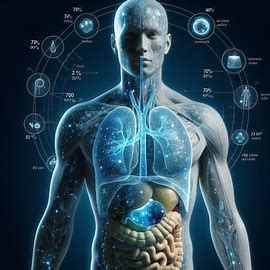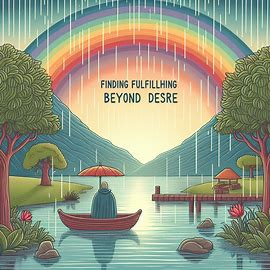The Vital Role of Water in the Human Body
Around 65 percent of an average healthy human body's weight consists of water. In some cases, such as in thin individuals, this percentage may rise to 70 percent, while in plump individuals, it could be lower, perhaps even dipping below 55 percent.
Even a slight decrease
in the body's water content, as little as 1 or 2 percent, triggers thirst. A
more significant drop of 5 percent can lead to symptoms such as skin shrinkage,
dry mouth and tongue, and even hallucinations. A 15 percent drop can be fatal
due to dehydration.
Water within the body plays multifaceted roles. It shields internal chemical processes from abrupt changes in pressure, acidity, and chemical composition. It lubricates joints to prevent bone friction, envelops soft tissues to prevent adhesion, and surrounds vital organs like the brain and heart in protective fluid.
Moreover, water acts
as a conduit for nutrients, waste, oxygen, and carbon dioxide. It facilitates
the rapid circulation of heat energy through the bloodstream, which is
predominantly water-based.
The cooling effect of
sweat evaporation maintains metabolic heat within manageable levels. Water also
aids in food digestion and waste removal through perspiration, urine, and
digestive fluids. Consequently, maintaining the body's water balance is crucial
in terms of both quantity and quality.
In regions like India, where water contamination is prevalent, numerous common ailments, including diarrhea, dysentery, cholera, typhoid, jaundice, and intestinal infections, stem from impure water sources.
Additionally, the
thawing of polar ice due to climate change poses a concerning prospect. As
ancient viruses preserved in ice get released into the environment, diseases
like smallpox, polio, influenza, and potentially new pathogens could reemerge,
posing significant health risks to humanity.
In essence, while
intellectual prowess is important, Fyodor Dostoevsky reminds us that it is the
values, character, and compassionate ideas that truly guide and shape us.
Finding
Fulfillment Beyond Desire
Many ponder whether sincere and efficient work is possible without desire. The truth reveals that sincerity flourishes naturally, and efficiency peaks when actions aren't driven by desires. Desires tether the mind to future gains or losses, diverting attention from the present task and fostering expectation, anxiety, and fear, which ultimately impede performance.
From birth, we're conditioned to seek external sources of happiness, believing they'll fill an inherent void and bring contentment. But has anyone attained lasting happiness from worldly gains like money, power, companionship, fame, or accolades? Even the most intense joy wanes once the mind fixates on new lacks or fears of loss. True happiness doesn't stem from fulfilling desires; it arises from transcending them.
When desires are temporarily fulfilled, the mind enters a brief state of 'desirelessness,' content and serene until the next craving or fear disrupts its peace. Genuine happiness emerges from an undisturbed mind, unveiling the tranquil joy inherent within our innermost essence—the Self. It's akin to glimpsing the serene depths of a lake when its surface is calm. This explains the profound bliss experienced in meditation, where worldly distractions fade, and the mind merges with its source.
Upon realizing that
joy springs from within, an innate aspect of our Self, we comprehend that
desires breed unhappiness by pulling us away from our essence. If happiness
resides internally, why pursue fleeting pleasures from external sources?
Without expecting happiness from the outcomes of our actions, our motivation for work shifts solely to the action's objective result, devoid of the pursuit of happiness. Freed from desire, our minds naturally find fulfillment and tranquility. We engage in tasks dictated by circumstances and our capabilities, devoid of the expectation of happiness. Instead, we perform joyously, and such desireless endeavors yield optimal results.
Observing the
universe's ceaseless activities—Earth orbiting the Sun, rivers flowing, plants
thriving, flowers blooming—we witness nature's harmony devoid of desire.
Diminished desires allow us to blossom authentically, like flowers in our
inherent nature, spreading joy effortlessly.
IF HE EXIST
I drive joy there was a doctor in Benaras who
spent 7 minutes in the morning and evening for mediation on God. Knowing this,
his colleagues and friends laughed at him. One day they argued that he was
wasting 7 precious minutes on something, which he had been misled into
believing. The doctor replied, “Well, if God does not exist, I agree that I am
wasting 7 minutes a day. But, if He exists? I am afraid you are wasting your
entire lifetime. I prefer to waste 7 minutes rather than a lifetime. Why should
you grudge me the 7minutes joy that I derive 4m.-
ILLUSTRATED REVIEW
:7thheaven moment of the week in , in ipl gt captain
7 s. gill got man of the match, Kkr won scoring 157/7














No comments:
Post a Comment